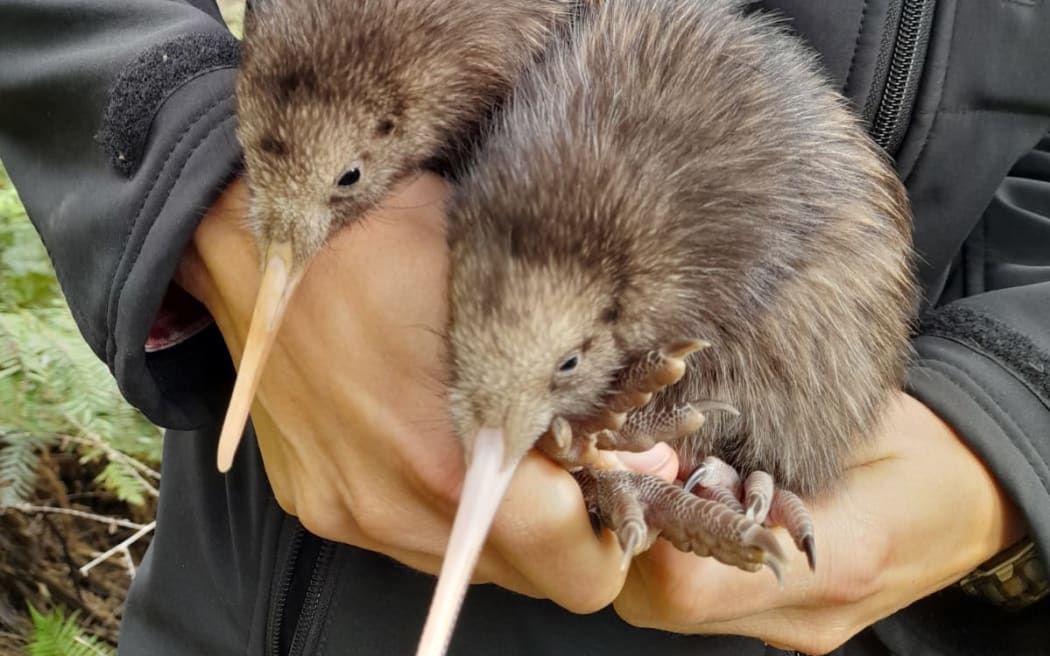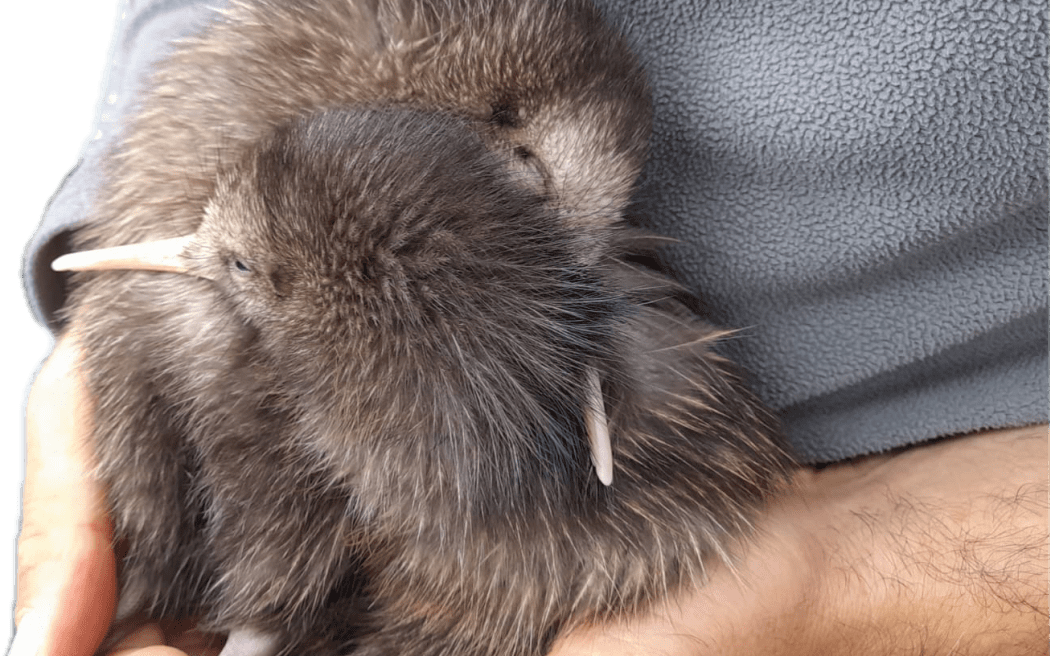Wellington welcomes wild-born kiwi for first time in 150 years
Wellington welcomes wild-born kiwi for first time in 150 years

Two kiwi North Island brown kiwi chicks have hatched in the Wellington wilderness for the first time in 150 years. Photo: Supplied/Capital Kiwi Project
Kiwi chicks have been born in the Wellington wilderness for the first time in 150 years.
The Capital Kiwi Project made the discovery of two pēpē (baby) kiwi on Monday.
The chicks hatched from a pair of eggs in the wild around one week ago, said project founder Paul Ward.
Capital Kiwi laid 4600 stoat traps across 24,000 hectares (the same size as Able Tasman National Park) in scrub covered hills southwest of Wellington.
North Island Brown kiwi (kiwi-nui) were first released into the project area last year, when predators were deemed to have been controlled to a suitable level.
"This is a massive milestone for our goal of building a wild population of kiwi on Wellington's back doorstep," Ward said.
"It is a wonderful Christmas present for Wellingtonians, and the ultimate in thanks for our iwi (mana whenua and gifting), landowners and local communities that have supported the project so passionately."

The two kiwi chicks born in the wild in the Captial Kiwi Project area, south-west of Wellington City. Photo: Supplied/Capital Kiwi Project
The two new chicks brought the project's known kiwi population to 65, he said.
Only one-third of the adult kiwi released into the project area were monitored so it was possible there were more kiwi chicks across the project landscape.
"The successful breeding reinforces that the Wellington hills were suitable habitat for kiwi.
"While this is hugely exciting, it is early days. These chicks now need to fend for themselves in the wild. The coming months are vitally important as they grow and put on weight to the point that they can fend off stoats with their big claws."
Capital Kiwi would not be providing updates on individual kiwi, Ward said, as the project's goal was to build a growing wild population.
"However, this is a deeply significant project milestone that we need to share with our local community. Nau mai haere mai e ngā pēpē kiwi ki te ao mārama - welcome kiwi babies to the world of light."
Two hundreds more kiwi were set to be released into the project area in the coming months.



Comments
Post a Comment